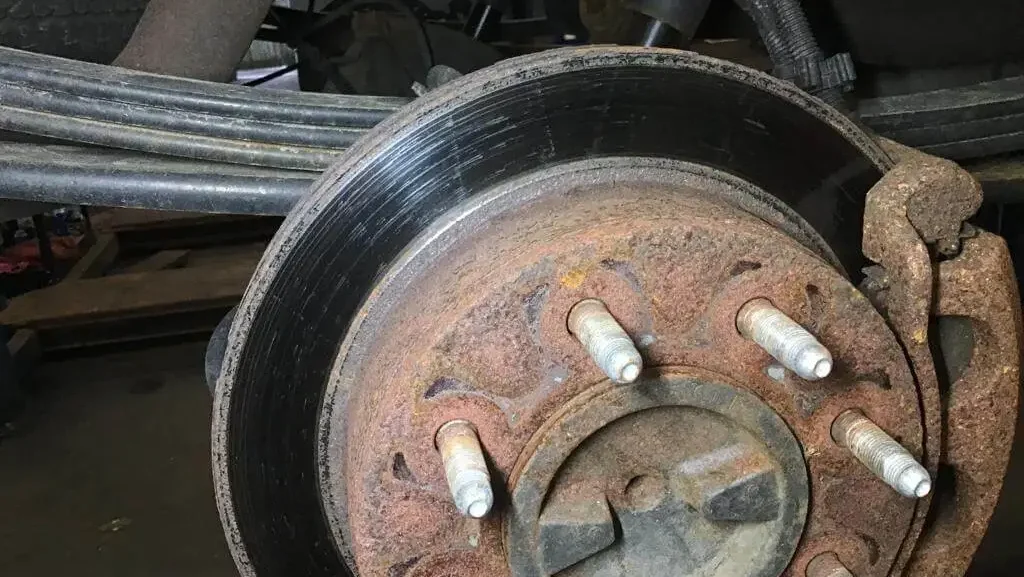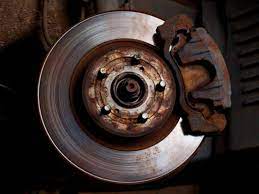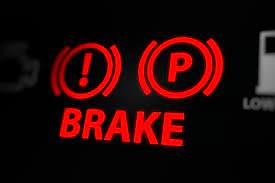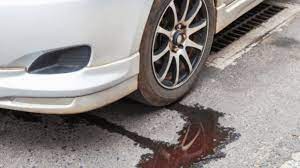Bad Brakes: Are you brakes speaking to you? There is one part of your car that should always be in good condition regardless. This is your car brake. As a driver, it is pertinent to know the importance of proper brake maintenance.
Let’s say you are driving back home from work and you’re approaching traffic. You try to slow down but your car refuses to. You hit the break severally but oh dear, it’s not working. Now you’re in panic mode. Luckily the brake works. Pheew! Bad brakes!
These kinds of situations may arise regularly if you drive around with faulty or bad brakes, however, they can be avoided with proper brake maintenance.
Let’s take a look at symptoms of bad brakes.
About Car Brake
A mechanical brake is a device that prevents motion by taking away the energy from a moving system. It is used to slow down or stop a moving vehicle, wheel, or axle, or to prevent its motion. Friction is most frequently used to achieve this.
Friction and heat are produced by the energy of the braking shoes pushing against the drums and the brake pads clamping on the rotors. This heat-friction reduces the rotation of the rotor and axle (and wheel), together with the friction created between the tire and the road surface, and ultimately brings the vehicle to a stop.
The brake calliper assembly, which frames the rotor, is coupled to the brake pads. Drum brakes, which are found on the vehicle’s back, have wheel cylinders, brake shoes, and a braking drum. When the brake pedal is depressed, the wheel cylinders push the brake shoes into the brake drum, stopping the car.
When you have bad brakes, your vehicle will be unable to perform as efficiently as it normally would. Here are some signs of bad brakes.
Signs of Bad Brakes
Bad brakes have several symptoms depending on what is actually wrong. You may not experience all of them, however it is wise to watch out for any of the following signs.
Squeaky, Squealing or Screeching Noise
A small metal piece called an indicator is designed to make a really irritating noise when your brake pads are wearing out. When bits of metal in your brake pad come in contact with the rotor to emit a high-pitched noise when you apply the brakes, it is not always a sign of bad brakes; however, you will need to change your brake pads.
Brake Light On
When your brake is faulty, the brake light indicator appears on your car’s dashboard. This is an alert that you have bad brakes which either need brake maintenance or something is terribly wrong.
Your car’s two warning lights could mean braking issues. One is the anti-lock brake light, which is represented by a red “ABS” enclosed in a circle. If this light illuminates, one of the anti-lock brake sensors might be malfunctioning. This issue cannot be resolved by you alone. Take the car in if the light continues to be on.
The brake light is the second. Some automobiles just have the word “Brake” here, while others have an exclamation point enclosed in two brackets. This light may occasionally signal a straightforward problem with your parking brake, which may be engaged while you’re driving.
This one is simple to fix. If the light remains on, though, it might be a sign of a more serious issue, such as a brake fluid leak.
It’s possible that your brakes’ hydraulic pressure is inconsistent or that there isn’t enough brake fluid. Make an appointment for service if your brake light is on because these issues might be harmful.
One thing to remember: if your car’s ABS and brake lights both turn on simultaneously, stop driving! This suggests that both of your brake systems are in immediate danger.
You can keep your brakes in top form and reduce your risk of being in an accident on the road by keeping an eye out for these warning signs of bad brakes.
Grinding Brake Sounds
If you do let your brake pads completely degrade past their useful life, you’ll start to hear a metal-on-metal grinding sound, which indicates your rotors are starting to suffer damage. Sounds like grinding or snarling are quite problematic.
They appear when your brake pads are totally worn out and signify rotor damage. To prevent further harm to your braking system if you are experiencing grinding, consult with a brake expert as soon as you can.
Vibrations or Wobbling When Applying the Brakes
If you experience your brakes vibrating or wobbling when you apply them, this means that if you hold on anymore due to the metal on metal rubbing, your rotors can become twisted or bent, which could cost you significantly more to repair.
Less responsive or soft brakes
You should have your brakes checked right away if you notice a “soft” pedal when you apply the brakes or if the pedal presses all the way to the floor. In order to protect the safety of both you and the motorists around you, it’s frequently an indication that you have extra water in your brake system or that your master cylinder isn’t working properly.
Pulling to One Side When Braking
Do you notice that your vehicle pulls or tilts towards one side when you apply your brake. This is a common sign of bad brakes. It’s likely that the brake linings need to be adjusted because they are wearing unevenly. You may need to have the brake fluid emptied and refilled if it’s a sign that there is some form of foreign object present in the fluid.
Leaking Fluid
In car hydraulic brake and clutch applications, brake fluid is a type of hydraulic fluid. Brake fluid leaks are frequently a sign that your master cylinder needs to be changed. All of your braking power comes from the hydraulic pressure generated between the cylinder and brake lines, which is where your brake fluid is located in the master cylinder.
You probably won’t be able to stop your car as easily if you’re leaking fluid. To ensure that you don’t lose all of your braking power, let a brake professional check your fluid levels and braking components.
Examining under your vehicle will reveal whether your brake system is dripping fluid easily. It’s definitely brake fluid if you discover a small pool of fluid after the car has been parked for a time and it resembles fresh engine oil but isn’t as sticky.
Burning smell
If you notice a burning smell coming from your wheels and brakes, it’s possible that your clutch or brakes have become overheated. If you keep driving, your brakes could completely fail. Pull over right away and check your brakes if you notice or smell smoke coming from them.
If you notice any of these symptoms, it means that you should pay closer attention to your brake. Change the brake pad when needed, or change the brakes completely if necessary. Watch out for leaking fluids and or vibrating or wobbling sensations coming when you press the brake.
You can hire a technician from us to assist you if you have any vehicle troubles.




